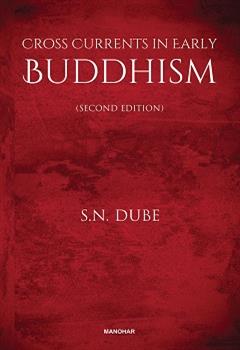Cross Currents in Early Buddhism
no information available
Roughly about a century after Lord Buddha’s demise his teachings came to be closely scrutinized when the meanings and significance of traditional Buddhist ideas were intensely examined and diverse hypotheses advanced to elucidate and harmonize them internally within the context of Buddhist thought as also with the ideas which were then current in the general intellectual milieu of the times. The present study attempts to analyze the world of thought presented in the Kathavatthu an important canonical text on doctrinal controversies. The tradition ascribes it to the age of Mauryan Emperor Asoka. It is indeed gratifying to place before the students of Buddhist studies a second edition of the Cross Currents in Early Buddhism. An important feature of the new edition is the addition of an exhaustive introduction to the work and a concluding chapter entitled ‘Threshold of Mahayana’ which shows that its emergence was not accidental. lt was in the making for a long as reflected in the novel ideas put forth by the dissident sects like Mahasa?ghaikas and their sub-sects. The new ideas took a definite shape probably not later than the close of the first century b.c. And if its emergence is to be so placed there is no reason why the roots may not be found earlier. Certain doctrines debated in the Kathavatthu seem to delineate a bridge between the Hinayana and the Mahayana sects. About the Author Surendra Nath Dube (b. 1941) is a former Tagore Professor and Head of the Department of History and Indian Culture University of Rajasthan where he taught for 35 years. Beside several research papers both in Indian and foreign journals his major publications include History of Indian Civilization and Culture (1985) Religious Movements in Rajasthan (1996) Ideas and Movements in the Age of the Mauryas (2012) A History of Early Buddhism (2022). His very first book Cross Currents has been acclaimed internationally. He edited Jijñasa a Journal of the History of Ideas and Culture University of Rajasthan for more than a decade (1990-2001). Prof. Dube is an ex-Fellow of the Indian Institute of Advanced Study Simla (2002-2005) and a former member of the Indian Council of Historical Research New Delhi (2008-2014).
... Read more Read less










